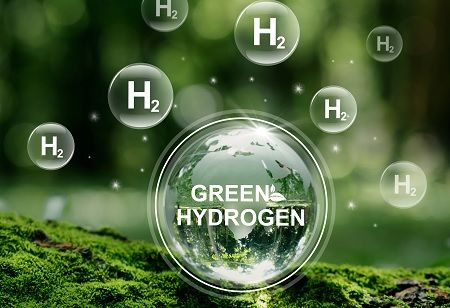
India Highlights Green Hydrogen Prospects at 2024 Summit in the Netherlands

 India has established its inaugural pavilion at the 2024 World Hydrogen Summit in Rotterdam, Netherlands, organized by the Ministry of New and Renewable Energy. Remarkably, the Indian Pavilion is among the largest at the summit, hosting approximately 15,000 delegates from across the globe. This prestigious event serves as a platform for the global green hydrogen community. Through its participation, India aims to highlight its advancements in the realm of Green Hydrogen to an international audience.
India has established its inaugural pavilion at the 2024 World Hydrogen Summit in Rotterdam, Netherlands, organized by the Ministry of New and Renewable Energy. Remarkably, the Indian Pavilion is among the largest at the summit, hosting approximately 15,000 delegates from across the globe. This prestigious event serves as a platform for the global green hydrogen community. Through its participation, India aims to highlight its advancements in the realm of Green Hydrogen to an international audience.
The Indian delegation at the summit includes representatives from key government bodies such as the Ministry of New and Renewable Energy, the Department of Science and Technology, the Ministry of Railways, and the Ministry of Petroleum and Natural Gas, along with participants from private sector entities. Apart from facilitating government-level discussions, the Summit offers Indian industries an opportunity to connect and collaborate with international counterparts from various countries.
India launched its National Green Hydrogen Mission in January 2023 with an overall outlay of Rs 19,744 crores. India has set an ambitious target to achieve a green hydrogen production capacity of 5 million tonnes by the end of the year 2030. As of date, the Ministry of New and Renewable Energy has awarded tenders for setting up 412,000 tonnes of Green Hydrogen production capacity and 1,500 MW of electrolyzer manufacturing capacity.
India meets a sizable portion of its energy needs through fossil fuels, and various renewable energy sources, including green hydrogen, are seen as an avenue to reduce the dependence on conventional sources of power. At COP26 held in 2021, India committed to an ambitious five-part 'Panchamrit' pledge. They included reaching 500 GW of non-fossil electricity capacity, generating half of all energy requirements from renewables to reducing emissions by 1 billion tonnes by 2030.
India's overarching goal includes a 45 percent reduction in the emissions intensity of GDP and a commitment to achieving net-zero emissions by 2070. Currently, approximately 44 percent of India's energy needs are met by non-fossil sources, a figure projected to rise to as high as 65 percent by 2030. This exceeds the pledge made by the country at the COP summit in 2021. Union Minister RK Singh, responsible for the power and renewable portfolio, highlighted these recent developments.